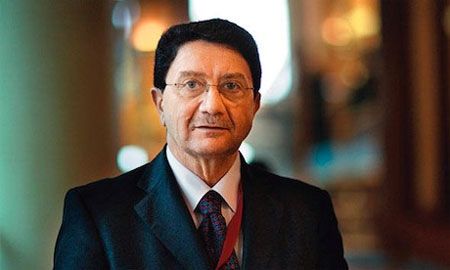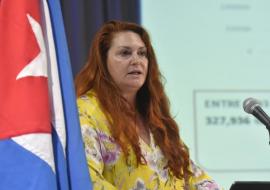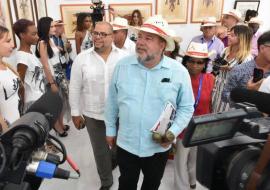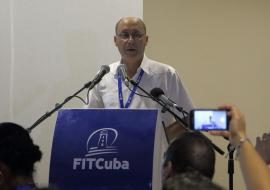Q & A with Taleb Rifai, Secretary-General of the World Tourism Organization

Taleb Rifai, secretary general of the World Tourism Organization, in an exclusive interview with CND, talked about the opportunities featured by the island nation in terms of the local leisure industry. He said the island has a leading role to play in the Caribbean region.
The comment that Cuba is a country with great potential in the travel industry opened our dialogue with Taleb Rifai, secretary general of the World Tourism Organization, who is presently visiting the island and attended the grand opening ceremony of 2014 FITCuba, held on Tuesday.
Despite the haste and intense heat that accompanied the visitors during the first day of the fair, the top representative of the WTO talked to CND and underlined the opportunities on the Largest of the Antilles to totally develop this economic area.
“Cuba has reached a multi-factorial conception of tourism from the local boost to the integration of different products on the leisure industry”.
How would you define Cuba within the Caribbean region, which is one of the most visited areas in the continent?
Cuba is identified by the constant work on cultural tourism, patrimonial concept, its people, gastronomic offer, and of course, its appeal as a sun-and-beach destination.
But the offers in the sector go beyond the traditional sun-and-beach product…
This is a very good decision, since the country is characterized by strengths linked to its historic precepts, and it features culture, identity, the friendly character of its people, every element to make it stand as an attractive and unforgettable destination.
He highlighted the success pattern followed by Cuba, with constant growth levels and continuous increase, and that’s the reason why the country received over two million tourists last year.
Taleb pointed out that the country has the potential of an elite destination, with future development in such sectors as golf, with well-conceived governmental strategies and multiple interesting elements.
He asserted that the incentive and interconnection of people in the travel industry is presently changing, mostly because of the information technologies that foster the globalization of tourism.
Mr. Rifai recalled the elements he mentioned during his magisterial lecture, given minutes before at the National Hotel of Cuba, where he put on the table three challenges to be faced by the travel industry –travel facilities, connectivity and taxes –and he defended the right all people have to travel, as tourism is the industry of peace.
He stressed that travelers are presently more prepared and, therefore, the travel incentives should be more related to cultural and patrimonial elements. “Cuba stands as a flagship in this matter, with a very attractive historic wealth”.
Mr. Taleb mentioned the role played by tourism as a job-generating industry, to achieve the local development of communities that have potential as travel destinations.
Finally, Mr. Taleb said that Cuba has a promising future, which will position it as the leader of the Caribbean and the Americas region.












